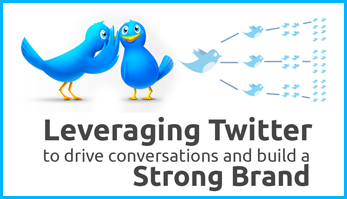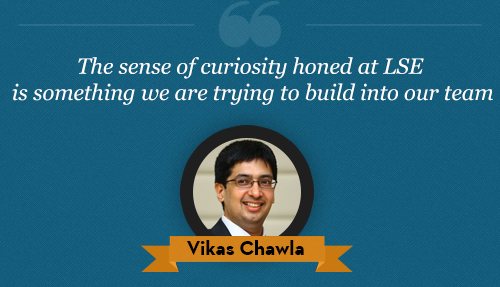Reading Time: 4 minutesOur co-founder, Vikas Chawla, was recently interviewed by LSE Alumni Echo, the alumni magazine of his alma mater. The complete excerpt of the interview, featured in the Nov edition of the magazine, is as follows:
What do you find most interesting about working in the digital industry?
The digital marketing industry by nature is ever evolving. Be it user experience, social media platforms such as Facebook or Twitter, or Google – it is an area of constant innovation. This means that our team has to constantly keep learning and innovating so that our clients stay ahead of the curve.
The industry is nascent in India which gives us the opportunity to make a profound impact in the sales and revenue of our clients. The internet penetration in India is just 20 per cent and the digital marketing industry is waiting to explode once the penetration reaches 40-50 per cent.
Do you think there is an area of digital strategy that organisations often undervalue?
In India most businesses are devoting just 5-10 per cent of their marketing spends to digital media. They tend to undervalue the return on investment even though the measurement and tracking of results is more seamless in digital compared to traditional advertising. They tend to still rely on traditional marketing channels that have worked for them in the past.
While large brands and enterprises have started to measure and understand the ROI of digital marketing, smaller and mid-sized businesses are still coming to terms with it. We demonstrate it can help in achieving long term results of building a community and building the brand and also short term revenue and lead generation.
What has been the best and most challenging part of starting your own business?
Undoubtedly, the best part of starting out on my own is the ability to impact our clients and their businesses. We are partners in growing their business and this makes it exciting for us as we need to continuously surpass their expectations.
We have been growing 30 per cent quarter on quarter, though it’s from a small base. As we scale up the venture, the greatest challenge will be to outperform this growth while simultaneously ensuring the quality of solutions, along with knowledge sharing and training our team members. In a market like India, growth is bound to happen and we must capitalise. Currently we are a 20-member team; we want our clients to get the same high quality service even when we are a team of 100 with an evolved organisation structure.
What is the most important asset in your business?
Talent. Being in a creative industry, what differentiates us is the talent we have and the creativity of the digital campaigns we come up with. We have a fantastic team and finding the right talent to join this team is one of the most important tasks we have ahead of us.
It’s now five years since you graduated from LSE: what are your experiences as an alumnus of the School?
Since I left LSE in 2009, it’s been an exciting journey. I worked for three years in marketing and strategy across different companies of an Indian conglomerate. I then decided to start out on my own. What I took from from MG428 (Entrepreneurship) at LSE has served me well. We looked at the need in the market and started out with the idea of providing integrated digital marketing solutions with a focus on creating revenue growth for our clients. It was the best decision I have ever taken and it’s been exciting building our start-up and scaling up the team and client base. The network of LSE alumni that I have developed helps immensely, as they are a sounding board for some of the ideas we have.
What did you learn at LSE that has helped you most in your career?
One of the key things I learned at LSE was to understand concepts in their base form and then try to understand how they can impact various scenarios. This has been extremely helpful in understanding our clients and what differentiates them in the market. Also, the sense of curiosity honed at LSE is something we are trying to build into our team. We have a weekly knowledge sharing session where we encourage team members to learn, discuss and share ideas.
Who is your LSE hero?
Professor Paul Willman from the Department of Management. We had some brilliant professors but Paul stood out. His understanding of the role and the conduct of traders in investment banks was brilliant. He could convincingly speak for both sides of the coin and have a plausible argument for and against the traders. His style of teaching always sparked interest in the minds of students. While class mates and study groups make a big difference, it was professors such as Paul that made learning at LSE fun and interesting.
You are an active member of the India – Friends of LSE alumni group. What do enjoy most about your involvement?
Our alumni are from different walks of life and it’s been interesting meeting alumni who are into fields completely unrelated to the one I am in. Meeting like-minded graduates and reliving our LSE days has been fun. It has been especially interesting to attend the LSE TRIUM evening that happens once a year in Chennai. The diversity of TRIUM students and what they have achieved is truly inspiring.
Describe the alumni group in three words…
Fun, dynamic and active.











